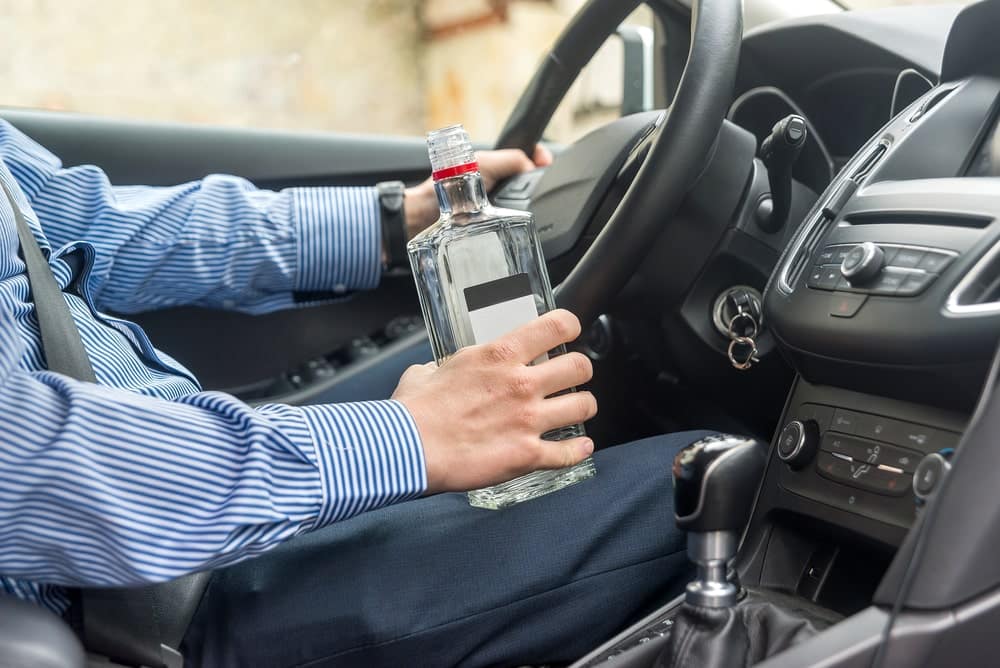Open Container Laws in Georgia

Did you know that you could be committing an offense simply by having an open container of alcohol within reach in your vehicle in Georgia?
Drivers and their passengers are generally prohibited from consuming alcohol or even possessing an open alcoholic beverage container in motor vehicles on public highways in Georgia.
Although the offense itself is a criminal traffic infraction rather than a misdemeanor or felony, there are penalties associated with open container laws. Furthermore, the infraction is often associated with DUI offenses, which carry harsh penalties in Georgia and may require representation from a criminal defense lawyer to prevent very harsh consequences.
What is the open container statute §40-6-253 in Georgia?
The open container laws in Georgia follow federal guidelines aimed at tackling drunk driving across the country—though state laws regarding this offense do vary.
The law in Georgia prohibits the consumption of alcoholic beverages or the possession of an open container of alcohol in the passenger area of a motor vehicle on the roadway or shoulder of a public highway.
The person charged with the offense will be the person who consumes the beverage or who is in possession of the open container. However, if a driver is alone in the vehicle with an open container in the passenger area, he/she can be charged.
What are the definitions of “alcoholic beverage” and “open container”?
The definition of alcoholic beverage is as follows:
- Beer, ale, porter, stout, and other similar fermented beverages, including sake or similar products, of any name or description containing one-half of 1 percent or more of alcohol by volume, brewed or produced from malt, wholly or in part, or from any substitute therefor;
- Wine of not less than one-half of 1 percent of alcohol by volume; or
- Distilled spirits which is that substance known as ethyl alcohol, ethanol, or spirits or wine in any form, including all dilutions and mixtures thereof from whatever source or by whatever process produced.
An open container refers to any bottle, can or receptacle with any amount of alcoholic beverage that is open, with a broken seal or with the contents partially removed. There are some exceptions, which are covered below.
What’s the definition of “passenger area” under the law?
The term “passenger area” is also critical to the open container laws in Georgia. This refers to the areas where the drivers and passengers sit, and any area readily accessible to the driver or passenger when they are seated.
This excludes the trunk, a glove compartment (if it is locked) or, in a passenger vehicle without a trunk, any area behind the rearmost seat not normally occupied by the driver or passengers.
What are the penalties for an open container offense in Georgia?
Although an open container offense is not considered a misdemeanor or felony in Georgia, it is often associated with the serious criminal offense of DUI.
If you are found with an open container, you will face a criminal non-moving traffic infraction. A violation of the open container laws will incur a fine not exceeding $200. There will also be an administrative penalty of two driver’s license points.
Are there exceptions to the open container law in Georgia?
There are some exceptions to the open container laws in Georgia.
Most notably, the laws exclude passengers “in the passenger area of a motor vehicle designed, maintained, or used primarily for the transportation of persons for compensation or in the living quarters of a motor home or house trailer.” This includes party buses or limousines, which are exempt from the open container laws. However, this does not include taxi cabs, which are still subject to the laws.
The law also excludes the transport of homemade malt beverages produced in private residences (“homebrew”). These can be transported in a motor vehicle if specific conditions concerning the container and location in the vehicle are met.
More specifically, if the producer is transporting the malt beverage for a homebrew special event, they may transport up to 25 gallons. The beverages must be securely sealed and bear a label including the following:
- The name of the producer
- The address where the malt beverage was produced
- The name and address of the homebrew special event the malt beverage is being transported to, and
- The permit number obtained by the homebrew special event.
Also excluded from the open container rules is an unsealed partial bottle of wine being transported in the vehicle from a restaurant that meets specific criteria in the statute.
Notably, the customer must have purchased a meal at the restaurant and consumed some of the wine with the meal. The restaurant must also have securely resealed the wine in a bag or other container that makes it visibly apparent if the seal has been tampered with.
A dated receipt must be attached to the sealed container for both the meal and the wine. The wine should be kept in a locked glove box, locked trunk or in the area behind the last upright seat.
What are possible defenses to an open container charge?
To achieve a conviction for an open container violation, the prosecution must prove beyond a reasonable doubt the following elements:
- The possession of an “open container” or consumption of an alcoholic beverage by the person charged (this may not be straightforward if multiple passengers were in the car as well as the driver)
- The location of the open container in a “passenger area” of the vehicle
The defenses to the charge available will depend on the precise circumstances of the case. Sometimes, the defense will be based on the conduct of law enforcement in making the stop, collecting evidence or when charging the accused.
Whether or not the offense is part of a DUI case, an experienced criminal defense lawyer can help defend you against an open container violation charge.
If you’re facing an open container charge or any other criminal driving charge in Georgia, speak to a defense lawyer from Michael Fulcher Law, LLC, who will outline your legal options and help reduce the impact on your future. Contact us for a free consultation.




